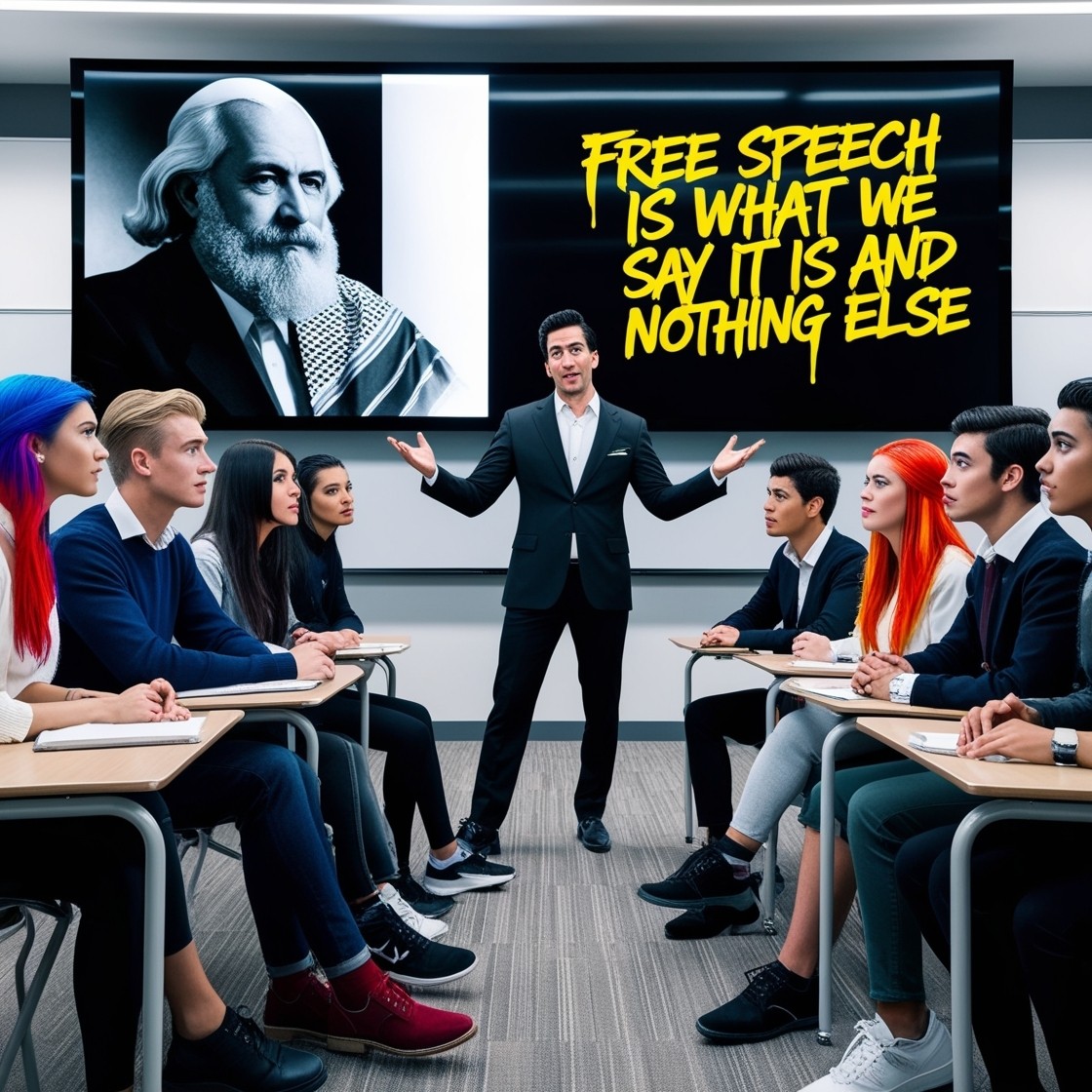
There's a very interesting discussion to be had on whether the online world is behind this nightmare of censorship and liberal conformity we’re now entering. In other words, confronting all of its wonders, the likes of Starmer et al feel powerless and so go full Stasi, in a way they’d not have thought necessary in the pre-internet age.
For 'progressives', their inability to control everything - or more accurately, to feel and appear in control - drives them nuts. It's massively magnified their sinister belief that they alone are decent, rational and 'know the facts'. The vast expansion of group-thinking graduates has much worsened this delusion.
My view is unchanged. Freedom of speech is an absolute, with only the pre-internet restrictions required - on very specific incitements to violence, at an individual level, and protection of children from pornography and grooming. Libel/slander are anyway civil matters, although often used to crush free speech.
I don't believe in criminalising 'hate speech' nor in any attempts to criminalise 'upset', 'offence' or 'threat'. That's not to deny these things exist, but free speech and debate are how they're to be dealt with. How can free speech ever be a threat in a true democracy?
On 'hate speech', it's impossible to fairly police this without political bias. Possibly that's untrue for specific racial hates, but such things are far better expressed and then confronted: sunlight is the best disinfectant. Most people abhor racial hatred and free speech is powerful enough to confront it.
Calls for violence were already covered by our laws, and well. Why was Britain the only major European country to escape 20th century totalitarianism and genocide? And why have there, thankfully, been very few attacks on mosques or Muslims, despite the huge amount of Islamist terror and mass-murder? Certainly not through restricting free speech - which arguably was more unfettered in WW2 than is now proposed by Starmer et al.
Policing mis and dis-information are nothing to do with any government, at all, on any topic. Of course, they can counter when they claim this is occurring - but not through the law. They anyway have vast powers and funding, for promoting their ideas. If those aren’t adequate then that’s free speech at work, suggesting their ideas need re-examining. Their inability to promote a Remain vote is a good example: they were on the wrong side of the argument, however much they spent and propagandised. So they lost.
Obviously, self-appointed 'fact checkers' can do what they like, and people can be equally vociferous in pointing out how - invariably and on any issue - they’re always campaigners for one side. Brexit and global warming are examples, with the BBC the classic campaigners masquerading as impartial commentators.
But the point I make which (not to me) will be most controversial is the complete abolition of laws relating to ‘hate speech and writing’. Again, I’m not denying these exist, but simply saying that our existing laws were easily enough to deal with them, when the line was crossed into incitement.
Others probably disagree. I’d welcome detailed explanations of how ‘hate’ can be defined fairly, for what are just words. Not least because our new government even wants to extend censorship to ‘harmful but not illegal’ speech.
It’s true that my proposal requires an implicit trust in any listener/reader to be capable of governing their own behaviour, and not being a mindless automaton triggered into action. Such an assumption was once an unquestioned one in any free society, especially in the arts.
The shocking absence of outrage in supposed literary circles is one of the most chilling aspects of the authoritarian era of licensed speech we’re now living in. Myopic ‘progressives’ are cynically lapping this up, out of self-interest, as ever blind to both the risks they’ll sooner or later face, and the underlying principles at stake.